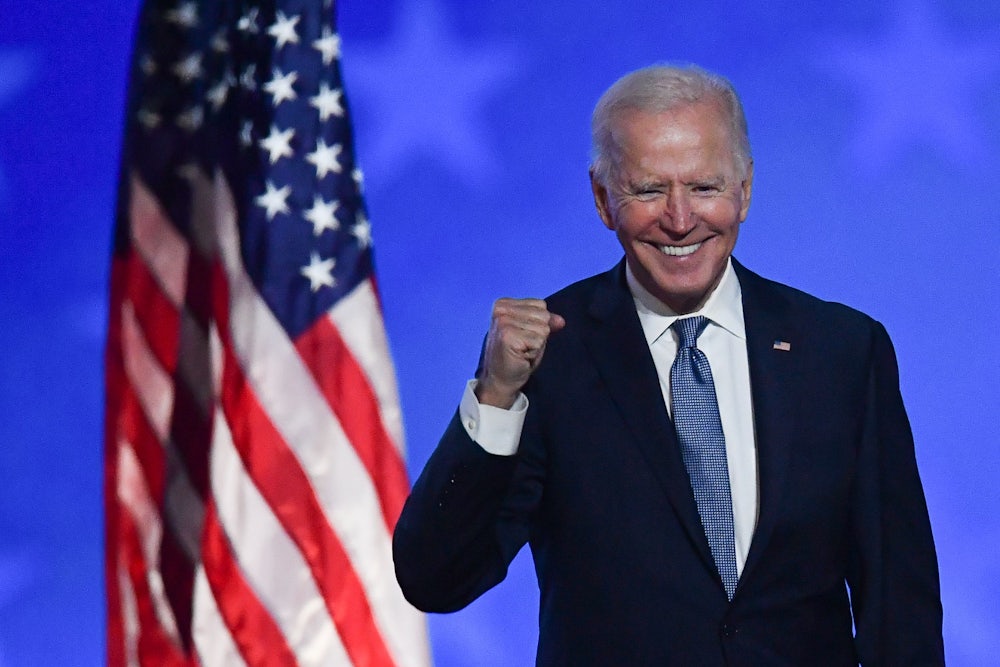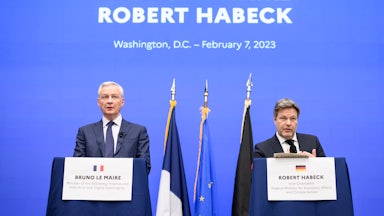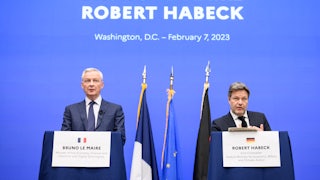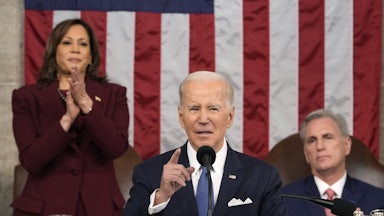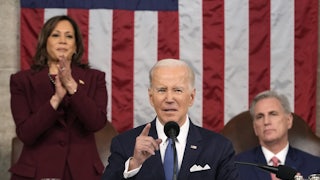For the last week, Republicans have been fuming about Joe Biden’s claim in the State of the Union that they—or at least many of them—are committed to gutting Medicare and Social Security. Naturally, this was an uncontroversial statement in a multitude of ways: Republicans have been committed to undoing the New Deal since its inception. Just last year, Rick Scott, the chair of the National Republican Senatorial Committee (and therefore the guy who serves as a policy pacesetter for the party), said the GOP would put these programs to the sword if it retook both chambers of Congress by “sunsetting” them alongside any other measures that have been around for five years or more. Cutting social welfare programs is at the heart of the Republican Party—it is its nucleic idea, the one thing that has stayed consistently true about the GOP for nearly a century. Those suddenly protesting otherwise have been serving up a distinct “I am not owned!” vibe.
Much has been made about the way Biden has boxed in the opposition on these accounts; GOP leadership has, for now, taken cuts “off the table” even as they continue to hold the debt ceiling hostage. But this will likely prove to be a temporary respite. There’s no reason to expect that anything Biden said during the State of the Union has warned them off their dream of gutting these programs long term; certainly they won’t be convinced to lend a hand in preserving them. The debt ceiling, meanwhile, remains a top concern; when the matter reaches a boiling point, as it will in the next few months, the fight could prove to be calamitous. Meanwhile, the Biden administration’s other big economic problem—whipping inflation now—is waddling along, but there’s no clear policy it can implement to reverse the price rises of the last year and a half. The larger economic policy picture remains uncertain heading into 2024.
But Biden has broken ground on a new economic policy commitment, which targets a new enemy: the Junk Fee Prevention Act. On a long enough timeline, everyone is going to encounter a plethora of junk fees. Everyone hates them—they’re the random charges added on to transactions for everything from concert tickets to rental cars to hotels to flights.
They are typically given Orwellian names—“convenience fees” is a particular favorite, given the fact that it’s money you spend to circumvent an inconvenience that the seller should simply not impose. These fees are omnipresent and regressive; they are, for all intents and purposes, a tax. (As a Knicks fan, I have cheered the ongoing implosion of the Brooklyn Nets for a variety of reasons; as a Brooklyn resident, I have celebrated it because it has resulted in a steep decline in ticket prices—still, these tickets are typically at least 33 percent more expensive than they seem when you try to buy them, thanks to junk fees.)
“Junk fees may not matter to the very wealthy, but they matter to most folks in homes like the one I grew up in. They add up to hundreds of dollars a month. They make it harder for you to pay the bills or afford that family trip,” Biden said during State of the Union address last week. “I know how unfair it feels when a company overcharges you and gets away with it. Not anymore.” The Biden administration has, over the last several months, pushed a variety of policies aimed at reducing bogus charges. The Federal Trade Commission, the Consumer Financial Protection Bureau, and the Department of Transportation have all been tasked with taking down junk fees.
The war on junk fees cleverly poaches a page from Elizabeth Warren’s economic playbook, boosting competition by targeting the most insidious examples of malfeasance around. Junk fees are something to which just about everyone can relate, they offer the administration an easy and simple way to make things cheaper, and they take aim at the multitude of actors who have free rein to nickel-and-dime ordinary people. The idea of doing battle with the purveyors of junk fees is also wildly popular: According to a new survey by Morning Consult, “About 3 in 4 Americans” are supportive of the plan. It’s a slam dunk—if anything, this policy should have been taken up when Democrats controlled Congress and the need to aggressively confront inflation was even more dire.
But the biggest reason to target junk fees is the especially strong nonpartisan support for the policy. As Morning Consult found, “Biden’s proposals have bipartisan support, with clear majorities of Democrats, Republicans and independents saying Congress should pass laws to limit” these fees. The consistent support for “bipartisanship” in American politics is largely a symptom of exhaustion: People are tired of nakedly partisan fights, which is understandable in an era in which everything becomes a partisan fight. But the junk fees fight is one bipartisan angle that will allow Biden to do battle with a group that is hated even more by the public than politicians: corporate profiteers.
